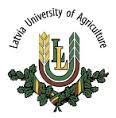Resource information
To comply with the requirements of the EU Directive 2009/28/EC for using renewable energy sources (RES) in Latvia, the agricultural industry has to become a significant supplier of resources to energy producers and consumers. An increase in the area sown with maize is forecasted by exploiting the unused agricultural land to expand biogas production. The agricultural area has decreased by 2% in Latvia over the recent decade, and 16% of its total agricultural area are not exploited anymore. Thus, agricultural land resources are available to produce intensively RES for biogas production in the future and to achieve the target set for renewables by 2020, so that the total capacity of biogas facilities reaches 61 MW. In 2011, totally 24 new biogas facilities with a total capacity of 29.38 MW started operating. Nevertheless, the Ministry of Economics of the Republic of Latvia has granted 59 licences to purchase electricity produced from biogas in compliance with the renewable power purchase obligation. It means that raw materials are needed for newly established biogas facilities.



